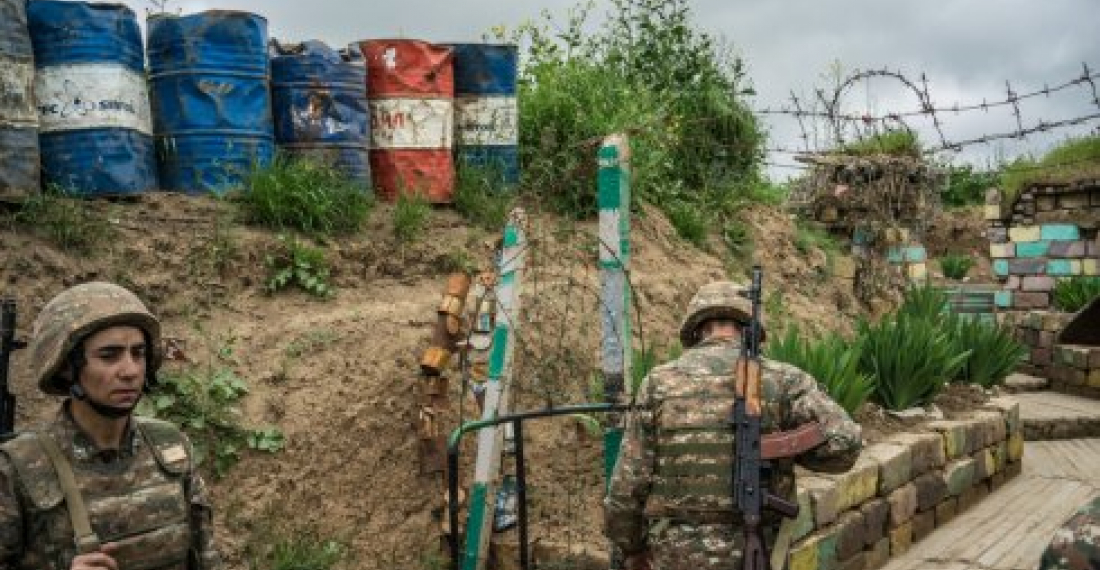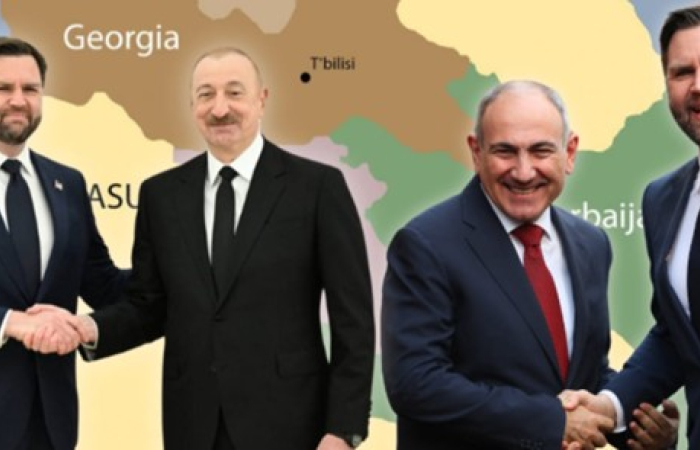Azerbaijan says that one of its soldiers was killed by Armenian sniper fire on Thursday afternoon (30 May) in an incident near the Agdam Region in the Nagorno-Karabakh conflict zone.
The Azerbaijani Foreign Ministry has said that the killing of an Azerbaijani soldier on the line of contact in the Nagorno-Karabakh conflict zone was a provocation and was timed to coiniced with the visit of the OSCE Minsk Group diplomats in Tbilisi on Thursday (30 May).
Earlier the Azerbaijani Defence Ministry said that Agif Akil Omarov was killed in the vicintiy of the Agdam Region in the Karabakh conflict zone.
Shortly after, a statement issued in Stepanakert by the self-declared Nagorno-Karabakh Republic Defence Ministry denied the incident, describing the information disseminated by Baku as "inaccurate".In the meantime the Co-Chairs of the OSCE Minsk Group (Igor Popov of the Russian Federation, Stéphane Visconti of France, and Andrew Schofer of the United States of America), together with the Personal Representative of the OSCE Chairperson-in-Office, Andrzej Kasprzyk, issued a statement about their visit to the region from 27 to 30 May.
The statement, posted on the website of the OSCE in Vienna, stated that "the Co-Chairs met with Prime Minister Nikol Pashinyan in Yerevan on 27 May and with President Ilham Aliyev in Baku on 30 May. In both capitals, they held consultations with the respective Foreign Ministers and Defence Ministers. On May 28, the Co-Chairs met with the de facto authorities in Nagorno-Karabakh. In Baku, the Co-Chairs met with the Chairman of the Azerbaijani Community of Nagorno-Karabakh. While in Nagorno-Karabakh, the mediators were briefed on humanitarian issues by the local representative of the International Committee of the Red Cross.
The main purpose of the visit was to assess the evolution of the situation on the line of contact and the international border, and to follow up on the discussions held by the Azerbaijani President and the Armenian Prime Minister in Vienna on 29 March and their respective Foreign Ministers in Moscow on 15 April.
As requested, the Co-Chairs provided proposals for concrete next steps in the settlement process, including on humanitarian and security measures. The Foreign Ministers of Armenia and Azerbaijan accepted the Co-Chairs' proposal to meet soon under their auspices, and will announce details at the appropriate time.
The Co-Chairs expressed deep concern about recent casualties and called on the parties to exercise maximum restraint to avoid escalation."
source: commonspace.eu with agencies
photo: An Armenian military boutpost in the nagorno-Karabakh conflict zone (archive picture)







